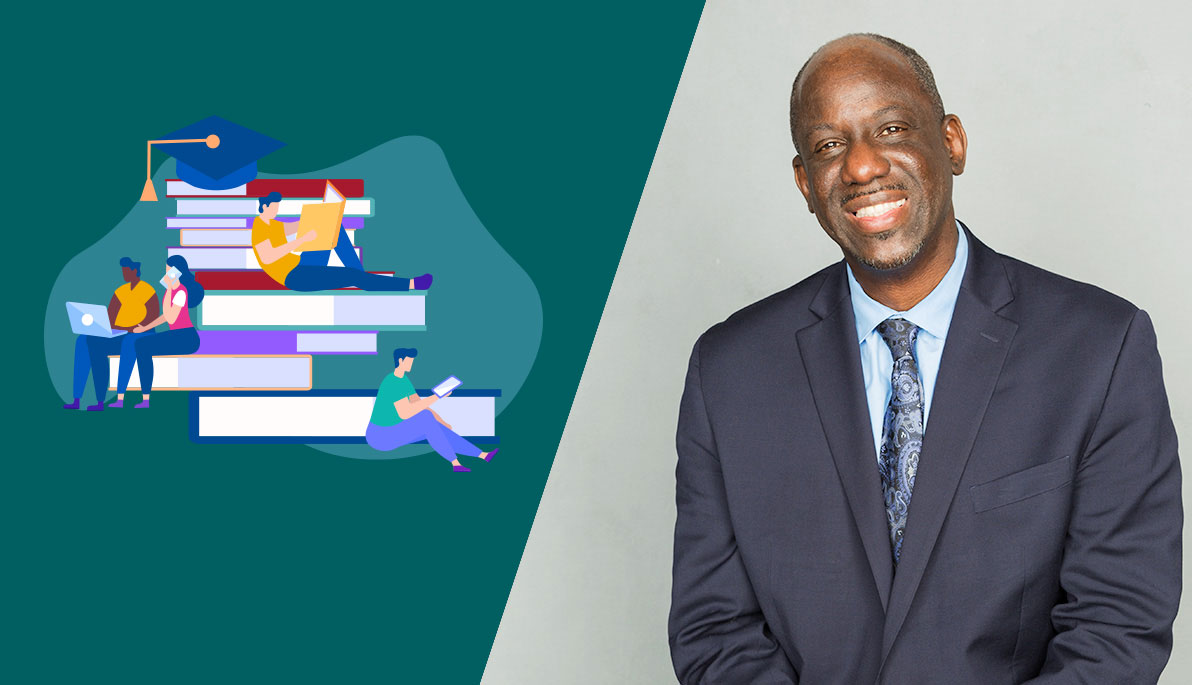
Community Conversations: COVID-19
July 15, 2020
On Thursday, July 9, Brian Harper, M.D., chief medical director and associate professor at New York Institute of Technology College of Osteopathic Medicine (NYITCOM), joined students for the first discussion of the Students First: Community Conversations Series. Harper, a seasoned public health expert and former Suffolk County Health Commissioner, addressed concerns about COVID-19, the novel coronavirus, and shared what New York Tech is doing to keep students safe. In addition to fielding questions from students, he described disease symptoms, the testing process, vaccination research, and precautionary measures, among other items. Read on to see the conversation’s key takeaways below.
How does it spread?
Harper explained that COVID-19 can be contracted in one of two ways: by touching a surface that holds the virus, or by breathing in the germs that someone else spits or coughs out. In addition to respiratory symptoms, change in sensation of smell and or taste, fever, and gastrointestinal problems, some patients have cited unusual effects such as COVID toes, which, as Harper noted, is when “someone will have lesions on their feet and their organs will become affected.”
What are the testing options?
Harper shared that there are two types of COVID-19 tests performed: the diagnostic test, which looks for the genetics of the virus within the body, and the antibody test, which will theoretically show if someone has gained immunity to the virus. Harper recommends the diagnostic test, as the antibody test is less reliable.
Is there a treatment?
When it comes to treating the novel coronavirus, Harper reminded students to be patient while medical teams across the globe do all they can to find a vaccine. Like all viruses, COVID-19 is non-curable, though Harper hopes for a vaccine in “maybe a year or so.” He reminded viewers that “it takes years and years to develop a vaccine,” and that “we just learned about this virus in 2019 and are still learning about ancient viruses like tuberculosis and syphilis.”
What can people do to prevent the spread of COVID-19?
As the world awaits a vaccine, Harper urged students to continue wearing a mask in public, maintaining six feet of distance from others, and washing their hands often. “Everyone needs to take individual responsibility,” he said. “Whether we are in a first wave or a second wave we have to keep taking precautions.”
What is New York Tech doing to protect students and members of the community?
Harper informed students that in its reopening plans, New York Tech is implementing social distancing in classrooms, frequent disinfection of utilities, and recommended hand washing. In addition to the Academic Health Care Centers, which can assist students who are sick, the university is also exploring purchasing more testing equipment in order to test the student body. Students chimed in and asked Harper questions about wearing masks for long periods of time and possible health risks in doing so; he was pleased to report that there are no lasting effects to wearing a face mask.
Students First: Community Conversations Series features discussions aimed at informing students about changes to be made at New York Tech during this pandemic and the support systems available to members of the New York Tech community. Tune in on Thursday, July 16 at noon to learn about COVID-19 updates to facilities, security, and safety with Vice President for Facilities Management and Capital Planning and Chief Architect Suzanne Musho.
More Features

An Alumnus’ Commitment to the Environment
As an energy management graduate from New York Tech’s Vancouver campus, Jasdeep Gulati (M.S. ’22) is highly invested in educating people about environmental and climate sustainability.

Vancouver Faculty Win University-Sponsored Research Awards in New Program
The new Global Impact Research Grant (GIRG) program has been developed to keep Vancouver-based faculty connected to faculty and research projects being conducted on the university’s New York campuses.

Studying Climate Change One Degree at a Time
Junhua Qu (M.S. ’24) began her collegiate journey in Beijing. But, her interest in climate change took her to New York Tech’s Vancouver campus to study energy management.
